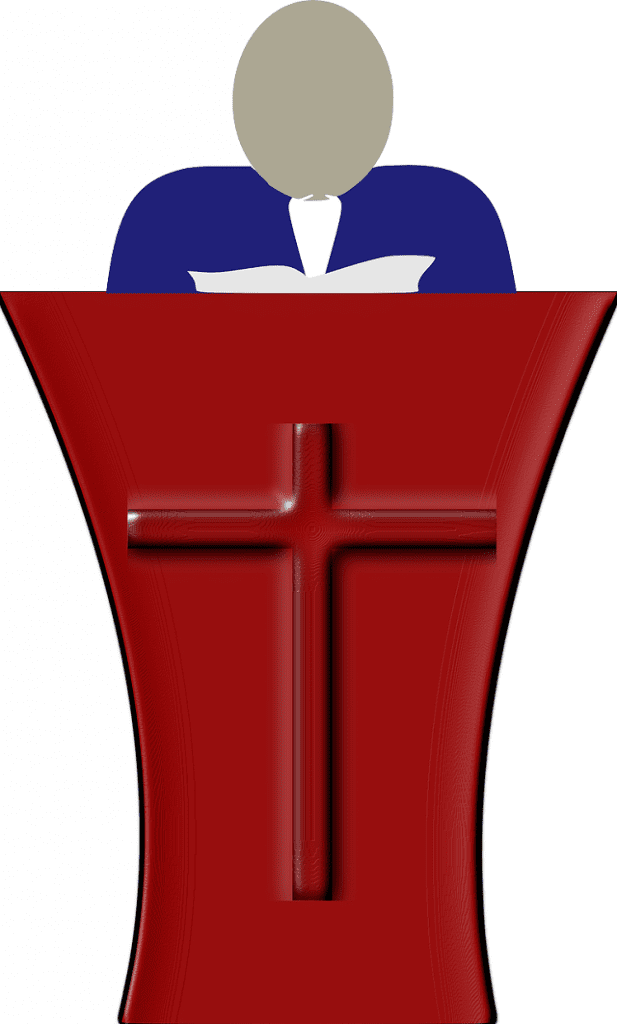
My good friend Paul R. Hoffer, a regular on my sites (and lifelong Catholic), asked an excellent question:
What is the definition of an “evangelical” Protestant? Aside from the denominational labels which are not an altogether accurate description of what an individual Protestant believes, is there something which distinguishes an “evangelical” from a “reformed” or “mainline” Protestant? Or is it more how one perceives the Holy Spirit working in their lives so a person can be both “evangelical” and a “Lutheran” or “evangelical” and “reformed Presbyterian or Baptist” let’s say.
The reason that I ask this is that one sees these terms bandied about in the news or on others’ blogs so often in so many different ways that the meaning of the word “evangelical” tends to get washed out or becomes so general so as to have no meaning and instead becomes merely a label.
It could be approached from many angles, but without getting too lengthy, I would reply as follows:
1) Centrality of a definite conversion experience (getting “saved”), after hearing the gospel, and repenting and dedicating one’s whole life to God (radical discipleship).
A sub-argument that occurs on this score is the nature of the gospel itself: many Calvinists, for example, collapse its meaning to their own distinctive of TULIP, but I have long argued that this is improper and unbiblical. The central aspect of the gospel is Jesus’ life, death, Resurrection, and atonement on the cross, on our behalf, as Redeemer of the world, not a particular technical theory of soteriology.
2) Personal relationship with God and an active prayer life.
3) Transforming of one’s life after getting saved (deep roots there in the Wesleyan / holiness tradition; i.e., sanctification).
4) Revivalism and high emphasis on evangelism and “witnessing” (sharing the gospel and one’s spiritual discoveries and experience with others; giving “testimony” — sometimes we would joke about these in self-effacing manner as “testiphonies”).
5) Presupposition of the two pillars of the “Reformation: sola Scriptura and sola fide (“Scripture alone” and “faith alone”). Sola fide presupposes grace alone, which is shared with Catholics and Orthodox.
6) #5, by definition, entails no infallible Church or Tradition (since sola Scriptura means that Scripture is the “only infallible authority”). Thus, an evangelical, strictly defined, is a Protestant, though the description, more broadly defined, shares many key elements with Catholicism, and indeed, I would call myself an “evangelical Catholic” (more often, however, an “orthodox Catholic”) because of common elements other than these two “solas”.
7) Strong belief in the infallibility and inerrancy of Scripture.
8) Adherence to the “fundamentals of (Protestant) Christianity” (basically the Nicene Creed).
9) Relatively more attention to Reason and Faith and Christ and Culture, over against the anti-intellectualism of Fundamentalism. This is stressed to differing degrees in different camps: most notably among the Reformed (people like Francis Schaeffer and Charles Colson).
10) Being more traditionally-minded in a Protestant sense, doctrinally and morally, so that “evangelicals” can be found in most denominations, as the more “orthodox” wing.
11) Evangelicalism transcends denominations (which is why it often thrives in “para-church” organizations like Inter-Varsity or Focus on the Family). It is more like a movement, like its half-sister, the charismatic movement. Often, if not usually, the movement of “evangelicalism” is regarded as far more important and self-defining than the denomination one happens to be in.
12) It is a wider category than Reformed vs. Arminian or Baptist vs. Presbyterian. It also incorporates different views of the sacraments and (somewhat) of the relative importance or authority of Church history. The agreement is on the “big tent” elements above, while there are differences in many other areas.
This much is fairly clear; however, many today use this label because it has a certain pride to it, without believing one or more of the requirements as understood in the post-World War II period, and theological ignorance is becoming more and more widespread, as I have often noted.
Usually the first things to go are the infallibility of Scripture and the usual sexual doctrines that are hard to follow (divorce, cohabitation, etc.). Hence, more conservative denominations such as the Southern Baptists or Missouri Synod Lutherans, are constantly engaged in in-fighting, to preserve the traditional denominational “orthodoxy” (or to redefine or “update” it, from the perspective of the so-called more “progressive” factions).
This compromising or “downgrading” of traditional distinctives of a denomination is precisely what inexorably leads to “mainline Protestantism” — which today is essentially synonymous with “liberal” or “postmodernist” Protestantism. Large denominations start merging together (note all the large “United” denominations) because they no longer believe what they used to believe and have less things in common, in a sort of “lowest common denominator” sort of skeletal Christianity. They have no doctrinal reason to be separated any longer.
Because that process of secularization and compromise has been going on for some 200 years (from the emergence of modern liberal religion, after the French Revolution and so-called “Enlightenment”), this in turn gives the “evangelicals” who reject and rebel against that additional self-definition and self-conceptualization as the “faithful remnant,” etc. And it leads to further splits, often for good reason (to preserve orthodoxy) but deleterious in the long run because there is no way to stop the incessant splintering of Protestantism and this ironically leads to further relativization of theology, defining of more and more doctrines as “secondary” and up for grabs (for the sake of peace), and the institutional chaos that was trying to be avoided in the first place.
It’s a Pandora’s Box, and there is no way to ultimately fix it (I must say, with all due respect to my esteemed Protestant brethren) than to become a Catholic, where all the problems that evangelicals are perpetually working through and never solving, have long been resolved, within the fullness of theological and spiritual truth that resides in the Catholic Church.














***